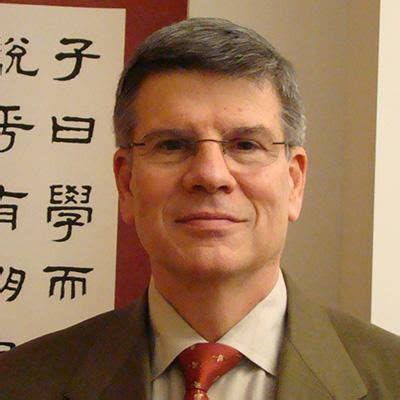A Quote by Robert Higgs
Since the end of the nineteenth century, if not earlier, presidents have misled the public about their motives and their intentions in going to war.
Quote Topics
Related Quotes
God Bless America started to become an almost ritualistic incantation at the end of political speeches really with Ronald Reagan. It appears occasionally before, but it was not that common. And of course since it was a song that wasn't written by Irving Berlin until the 20th century (laughter), none of the 19th century presidents said God Bless America at the end of speeches, either. I think that the symbolism which suggests that everybody is religious and that even presidents who believe in church and state feel obliged to do this.
Given that the nineteenth century was the century of Socialism, of Liberalism, and of Democracy, it does not necessarily follow that the twentieth century must also be a century of Socialism, Liberalism and Democracy: political doctrines pass, but humanity remains, and it may rather be expected that this will be a century of authority ... a century of Fascism. For if the nineteenth century was a century of individualism it may be expected that this will be the century of collectivism and hence the century of the State.
In the middle of the nineteenth century, the United States embarked on a new relationship with death, entering into a civil war that proved bloodier than any other conflict in American history, a war that would presage the slaughter of World War I's Western Front and the global carnage of the twentieth century.
The idea that Christianity is basically a religion of moral improvement... has its roots in the liberal Protestantism of the late nineteenth century and early twentieth century... It is this stereotype which continues to have influence today... But then came the First World War... What had gone wrong was that the idea of sin had been abandoned by liberal Christianity as some kind of unnecessary hangover from an earlier and less enlightened period in Christian history.
Most of what I read is for reviewing purposes or related to something I want to write about. It's slightly utilitarian. I definitely miss that sense of being a disinterested reader who's reading purely for the pleasure of imagining his way into emotional situations and vividly realized scenes in nineteenth-century France or late nineteenth-century Russia.
In the eighteenth century it was often convenient to regard man as a clockwork automaton. In the nineteenth century, with Newtonian physics pretty well assimilated and a lot of work in thermodynamics going on, man was looked on as a heat engine, about 40 per cent efficient. Now in the twentieth century, with nuclear and subatomic physics a going thing, man had become something which absorbs X-rays, gamma rays and neutrons.
The parallel between antifeminism and race prejudice is striking. The same underlying motives appear to be at work, namely fear, jealousy, feelings of insecurity, fear of economic competition, guilt feelings, and the like. Many of the leaders of the feminist movement in the nineteenth-century United States clearly understood the similarity of the motives at work in antifeminism and race discrimination and associated themselves with the anti slavery movement.
The hope for the twentieth century rests on recognition that war and depression are man-made, and needless. They can be avoided in the future by turning from the nineteenth-century characteristics just mentioned (materialism, selfishness, false values, hypocrisy, and secret vices) and going back to other characteristics that our Western Society has always regarded as virtues: generosity, compassion, cooperation, rationality, and foresight, and finding a increased role in human life for love, spirituality, charity, and self discipline.




































